Are you tired of replacing alternators and wondering why does my car keep burning out alternators? Alternator is an essential component to power electric parts. But it can burn out or get damaged due to plenty of reasons.
For example, a bad battery, improper installation, corroded wiring, or overload of power can cause excessive heat build-up inside the alternator and burn. If you keep replacing the burn-out alternator without fixing the root of the problem, it can damage the battery and electrical components.
Article Summary
Why Does My Car Keep Burning Out Alternators?
Your car’s alternator can keep burning up due to these reasons:
1. Bad Battery
An alternator charges the battery until it tops off completely. But an alternator needs to work hard constantly to charge a damaged battery. If the battery is leaking or has a damaged cable, charging it will ruin the alternator. To check if the battery is damaged, charge it overnight or perform a load test by an expert mechanic. If you don’t replace the damaged battery, your car will keep burning the alternator.
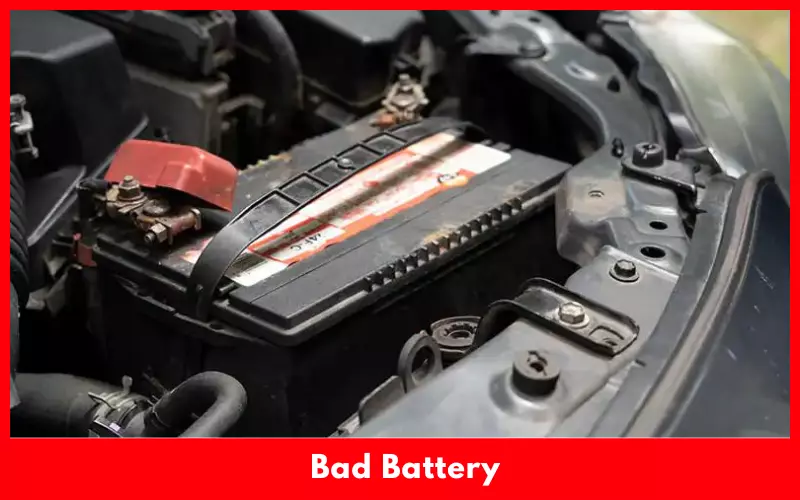
2. High-Draw Add-on Equipment
An alternator can get damaged quickly due to supplying power to the extra equipment of the vehicle. If your car has a large spotlight, audio system, or other electrical equipment, the alternator will need to run at maximum power to supply the required energy. If the alternator keeps overworking, it’ll fail over time. So, you’ll have to replace the alternator before its usual longevity.
3.Poor Quality Alternator
A weak alternator can’t withstand wear and tear more effectively and longer time than high-quality ones. Some cheap companies cut the corner of the alternator which can cause premature failure. Low-quality alternators also overheat quickly and may keep burning out quicker than usual.
You should also avoid using refurbished alternators as they wear out and burn out quickly and run smoothly.
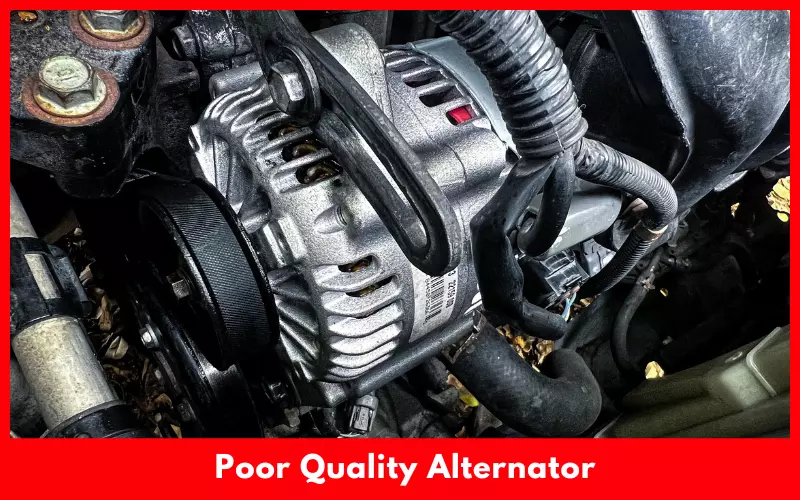
4. Improper Installation
If your car’s alternators are installed incorrectly, it can keep burning up. If you don’t secure the alternator firmly, it can get loose and damage other electrical parts too. So you should test the alternator after installing it to make sure it’s installed properly.
You shouldn’t also mix up the wiring during installing the alternator. The alternator comes with a protective boot that runs over the power cables and prevents arching or grounding. If you don’t place the boot properly, water can enter inside and burn the alternator.
5. Corroded Wiring
Corroded wiring can burn up the alternator quickly and you may need to replace it more often. To check the condition of the wiring, test the alternator’s voltage output and compare it with the battery’s actual voltage.
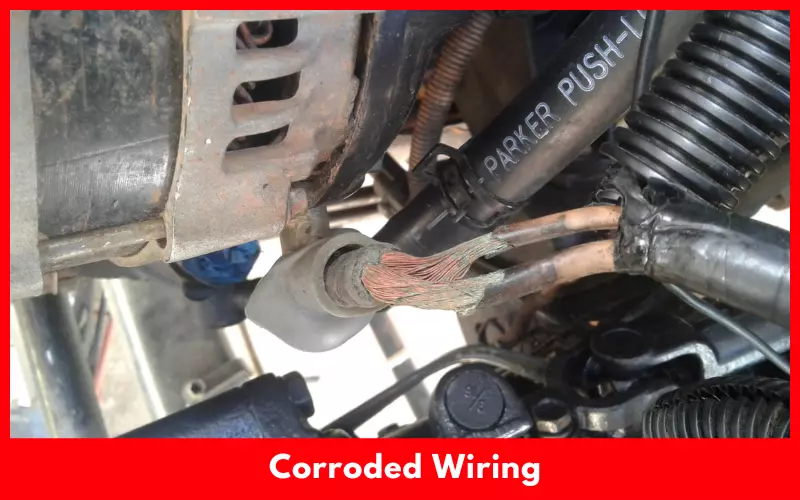
The voltage shouldn’t be more than 14.8 V. If you find the alternator’s voltage higher, check the ECM’s charge control system. You should also check the wiring connections to make sure no wires are making contact with each other.
How To Tell If A Car Alternator Has Burned Out?
ECM’s series of regulators and sensors control the alternator. However, the alternator triggers some symptoms when it starts burning out. In most cases, you’ll notice the stereo or light will start flicking. You may also smell a burning rubber odor coming from under the vehicle’s hood if the alternator gets overheated.
If so, you’ll notice other symptoms of alternating failure like dim lights or low voltage. You can also track the charging condition to determine if the alternator starts burning out.
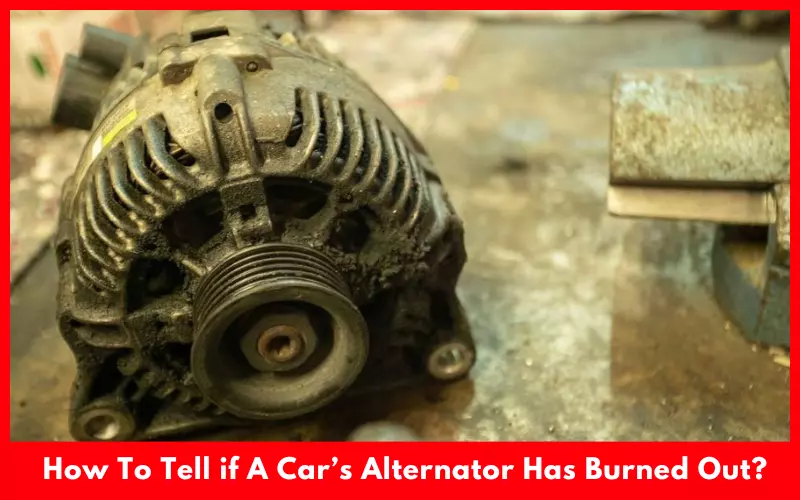
If you notice that car headlights get dim with engine idle and bright when revving the car, the alternator doesn’t put enough power. An overcharging alternator also indicated that will burn out soon and may damage the battery and boil the fluid. If you notice the alternator doesn’t charge the battery, it’s an indication of the damaged alternator. Reach the service station quickly before it damages the battery completely.
Some mechanical issues like worn-out bearing, squealing noise, and overheated serpentine belt indicate that the alternator may burn out at any time.
How To Troubleshoot A Car That Buring Up Alternators?
If your car’s alternator is electrically dead, it can be the result of a poor source like a marginal alternator recycler. If the alternator consists of an external voltage regulator, under or overdriving the alternator can also be responsible. To diagnose and determine the exact issue, turn on the car’s headlights and start the engine.
If the headlights become brighter before starting, the voltage regulator and alternator are okay. After starting the engine, if the light becomes brighter, the alternator and voltage regulator are in good condition.
If you experience any exceptions, consult with an expert mechanic. This procedure won’t work with xenon and LED leadlights. If your car has these types of headlights, turn on the incandescent lights to troubleshoot.
How To Fix A Car That Keeps Blowing The Alternator?
You have to check and work on plenty of accessories including wiring, electrical accessories, and battery terminals to retain the alternator’s longevity. So you shouldn’t perform this task if you don’t have enough skill and equipment.
To prevent your car from blowing the alternator, make sure it’s not drawing more than the rated amperage. Check all connections for security and cleanliness. Check the condition of your car’s battery using a load tester. Check the alternator control module and make sure it’s not misreading the voltage. The module should also overcharge the alternator.
To check the battery’s charging system, pull the cable. If your vehicle runs, the charging system is okay. Check the condition of the alternator putting a temperature thermocouple on it with the running engine and check the temperature.
Check the amount of current in the alternator drawing using an amp meter. Then turn off the AC and check the changes. If you find too high Amps, look for the sources. Finally, when replacing the alternator, make sure you purchased it from a reputable parts dealer.
How To Prevent An Alternator From Going Out?
You can not stop an alternator from getting damaged. However, you can follow these tips to enjoy your car’s alternator’s longevity up to 200,000 miles or so:
- Keep the belt at proper tension and make sure that the connections are tight and clean.
- Clean the dirt from the cooling fan’s slot regularly.
- Keep the battery and its connections, terminals, posts, ground, and starter tight and clean.
- Top with the electrolyte level up with distilled water.
- Connect a trickle charger to the battery when garaged.
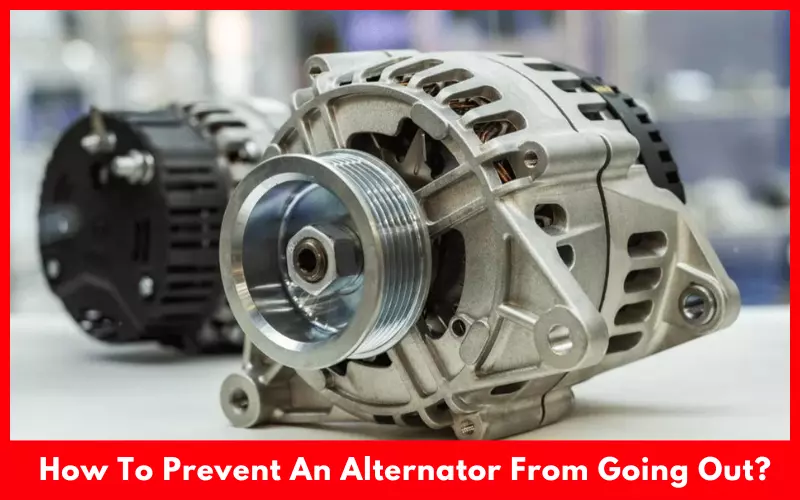
FAQs
How Often Should You Replace The Alternator?
On average, most alternators usually range between 80,000 and 150,000 miles. So you may need to replace the alternators every 7 years. There isn’t an exact set amount of time an alternator lasts.
What Can Burn Out An Alternator?
A car’s alternator can burn out due to excessive heat build-up. It can be caused by to damaged voltage regulator, wiring issue, or malfunctioning battery.
Can A Bad Ground Kill An Alternator?
A bad ground strap can kill an alternator by causing a charging problem. Electrical current returns to the battery through the ground strap. If it is corroded or damaged, the alternator won’t be able to provide enough charge to the battery. Intermittent power or flickering lights indicate a bad alternator grounding cable.
Final Words
Hope you understand why your car’s alternator keeps burning up. Now you should be able to determine the exact source and fix the issue to avoid replacing the alternate very early. However, if you can’t troubleshoot properly for burning out alternators, hire an expert mechanic. But don’t keep replacing the alternator as it can damage the battery and the car’s electrical system.

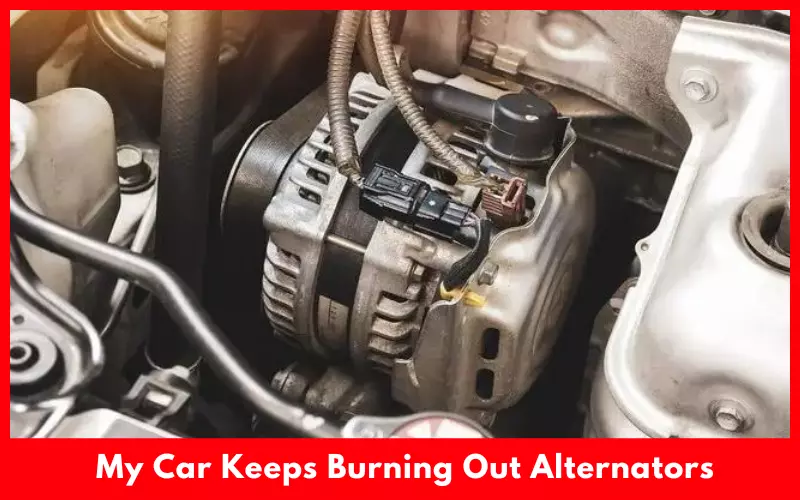
Alternators is an expensive car parts. It’s get burned out if you take your car to unskilled automakers. And I’m learning myself to save some money.